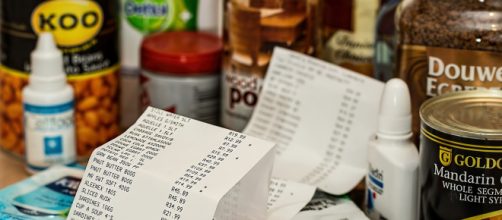Now that you are enjoying the warmer weather, the Beast from the East seems but a distant memory. But new retail sales figures show that the icy spell you endured kept people at home. High street shops felt the pinch from the beast, and so did the petrol stations. According to a Reuters report, retail sales saw the biggest quarterly drop in one year. On Thursday, official figures indicated that the decrease in retail sales also impacted on first-quarter economic growth.
Snow and ice kept shoppers indoors
Figures published by the Office of National Statistics (ONS) showed a 1.2 percent drop in retail sales when compared to figures from the previous month.
Economists polled by Reuters had expected a less significant decrease in spending. When comparing the whole first quarter of this year with quarter four last year, spending is down by 0.5 percent, which is the most significant drop since the first quarter of 2017. Experts now believe that this drop will reduce the anticipated 0.3 percent GDP-growth by 0.03 percent.
UK retail sales fell -0.5%q/q in the first quarter of this year - means the retail sector will be roughly a -0.03% drag on GDP growth. March sales fell -1.2%m/m as the snow storm hit fuel sales, but boosted online sales. pic.twitter.com/8AeY5bkXLg
— Rupert Seggins (@Rupert_Seggins) April 19, 2018
Following the publication of the data, Sterling fell to a one-week low.
During the same week, wages are reported to have risen at a slower rate, whereas inflation dropped at a faster pace than expected. Be that as it may, Reuters reports that few economists believe these figures will stop the Bank Of England from raising interest rates next month. This would be only the second-rate increase since the financial crisis. What's more, many economists are reported to predict a further interest rate increase later this year.
The decrease of retail sales associated with the Beast from the East has come as no surprise to the BoE. According to Reuters, the bank anticipated this decrease and won't allow it to alter the overall forecasts and prevent one or more interest rates hikes this year.
Although the Beast from the East may have slowed economic growth temporarily, the underlying picture still points toward a rate hike, so Reuters reports.
Petrol stations and supermarkets most affected by wintery weather
According to the Guardian, petrol sales dropped by 7.4 percent during the cold weather, as many people couldn't or did not want to drive. At the same time, consumers spent more money in specialist food stores rather than supermarkets, most likely because smaller stores may have been more easily accessible during the icy spell. Online sales also experienced a surge, especially in the runup to Mothering Sunday and Easter.
This morning, the oil price is reaching its highest level since 2014.
Last week, Bloomberg already reported on the impact of geopolitical tension on the oil price. According to the Guardian's economics correspondent, the airstrikes in Syria have heightened fears of a supply disruption, thus pushing up the price further. Saudi Arabia's push for $80 or perhaps even $100 per barrel may, however, entice Opec to curb the supply of oil to keep prices buoyant.
Crude oil prices have jumped to a 3-year high - here's why https://t.co/mpxBA0ncZG pic.twitter.com/2hSt3bvmjA
— Bloomberg Asia (@BloombergAsia) April 12, 2018
Debenhams woes continue
Debenhams has been making the headlines for all the wrong reasons. After issuing a profit warning in January, the group today cut its dividend because of a 52 percent slump in first-half profit.
The 240-year old department store has been trying to turn around its fortunes in a drive led by former Amazon executive, Sergio Bucher. He wants to close some stores, revamp others, improve online shopping, and make the group more efficient. Debenhams has blamed the Beast from the East for its latest woes, outlining that it had to close over 100 stores during the icy spell. According to the Guardian, share prices fell to a 9-year low this morning.
Terrible results from Debenhams - I foresee a year of change in the UK department store sector: BBC News - Debenhams sales hit by 'Beast from the East' https://t.co/s64NAcU2LO
— Rebecca Saunders (@RetailDetail) April 19, 2018


